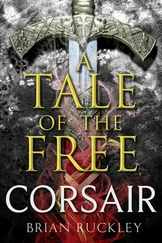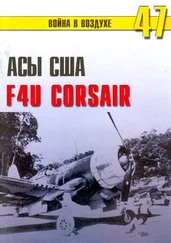On the twentieth day of their journey their guide claimed his payment. ‘Tomorrow,’ he told them, ‘we reach the market where I will sell the ostrich feathers and gum. You continue south, and by mid afternoon you will arrive on the banks of the river you have been seeking. But you must hurry. The local people say that soon the Wadnil will shrink within its banks. Then the river traffic ceases. They also tell me that there is a foreign ship anchored, even now, in the river.’
‘That’s good news,’ said Hector. ‘I had thought we would have to go down to the coast to find a foreign ship.’
‘The local people also tell me that there are powerful merchants who resent the presence of this vessel. They see it as a trespasser, a danger to their trade. I think you know who I mean.’
‘Are you talking about traders from Moulay Ismail’s kingdom?’
‘Yes. To them this territory is their own. They come here to take away the elephants’ teeth, the gold, the slaves. They are like jealous hunters who believe that all the animals in a forest belong to them.’
‘It’s strange to think of merchants as hunters.’
Hasem frowned. ‘The merchants, as you call them, bully the people into handing over their possessions, and if they resist, they hurt them. If they want them as slaves, they simply seize them and carry them away. I am told that is what their lord Moulay Ismail does to them. So they do it to others.’
Suddenly Hector felt despondent. After so many days’ travel he had thought that he had heard the last of Moulay. Now, it seemed, the Emperor’s malign influence extended even to the banks of the great river.
The Tooarick was watching him closely. ‘There is more to tell you.’
‘What is that?’
‘The ship anchored in the river is a small vessel and has been in the same place for nearly two weeks. My informants don’t know why it does not leave, because soon the falling river level will trap the vessel. No one comes ashore seeking to trade. It just stays there. Perhaps you can join the ship. I think that is good news.’
‘And there is bad news as well?’
‘The local people also say that the traders from the north have heard about the ship. They are sending some people to drive it away, or maybe to capture it and seize its cargo. My advice is that you hurry. Try to reach the ship before they do.’
The following morning, after thanking Sidi Hasem and leaving him with Karp’s musket and most of their remaining stock of gunpowder, Hector and his three companions set out on foot. The road towards the river was well trodden, and they found themselves walking between thick, green plantations of palm trees and banana plants. The air was hot and oppressive so they were amazed at the costume of a local chieftain who was proceeding to the river ahead of them. The man was wearing what looked like a nightshirt of thick, stiff, striped cotton laced at the neck and extending to his ankles. He had a heavy felt cap, and his voluminous robe was hung with dozens of pieces of red coral, clusters of small seashells, amulets and charms which clattered and jangled with each step. The costume was so stifling and cumbersome that the chieftain was obliged to march along very slowly, accompanied by his squad of sword-bearing bodyguards. Hector decided it would be prudent to turn aside and use a footpath through the trees which after a little distance brought him and his companions out on a bluff overlooking the river itself.
The Wadnil was more than a quarter of a mile wide, its turbid brown flood moving steadily towards their right. On its surface floated large branches and the occasional fallen tree, its great bulk circling slowly in the current. It was obvious that the river level was already dropping. Mud banks were beginning to show in the centre of the river, and nearer at hand the shoreline was a broad expanse of rich, black mud, already cracking in the sun. A few canoes were drawn up on the bank, stranded by the receding water.
Lying at anchor in the middle of the river was a small ship. To Hector’s eye she was not much larger than the fishing boats he had known in his childhood. She had a single mast, from which flew a plain red flag, and a neglected air. A ship’s boat was attached by a rope to her stern. Her deck appeared deserted.
‘What do you make of her?’ he asked Dan.
The Miskito squinted against the glare of the sunlight. ‘She looks like the trading sloops that come to the Miskito Coast. At a guess I’d say she has a crew of no more than half a dozen. They must have had hard work getting her up here against the current.’ He dropped his gaze towards the riverbank below them. ‘Look who’s here!’ he said softly. ‘We should keep out of sight.’
The chieftain and his bodyguard had reached the landing place where the road came to the riverbank. With him was a Moor who wore a faded red burnous. He was the same man who had been spokesman for the coffle.
‘I wonder where the others are?’ Hector said.
‘There, about thirty paces farther along the foreshore,’ said Dan who had the sharpest eyes. ‘You see that big, grey tree trunk lying stranded? Men are crouched behind it. They’ve got muskets with them. I’d say that they’re the rest of the merchants from the caravan.’
There were shouts from below them. The group standing on the landing place was calling and waving towards the anchored boat. The chief was trying to attract the attention of whoever was on board.
‘The landing place is in easy range of the hidden guns,’ said Dan. ‘Whoever comes ashore from that boat, the minute they set foot on land, they’ll be shot down. The Moors can then use the ship’s boat to row out and capture the vessel.’
Hector glanced up and down the shoreline. ‘We must warn whoever is on the ship. This may be our only chance of getting downriver.’
‘We could fire a musket,’ suggested Bourdon. ‘That would warn them.’
‘No. It would also alert the Moors. They would not treat us kindly for interfering. Besides, if the crew of the vessel know they are in danger, they will raise anchor and sail away.’
‘Then what are we to do?’
‘We must get out to the vessel ourselves. Dan, what are our chances of using one of those canoes to reach the ship?’ Hector pointed to the canoes drawn up on the bank.
The Miskito looked at the craft, then said, ‘They’re dugouts, hollowed from a single log. Even the smallest will be too heavy to be shifted by the four of us. We’ll have to think of something else, and quickly. Someone on the boat is getting ready to come ashore.’
A figure had appeared on the deck of the anchored vessel. He was hauling in the ship’s boat. A second man was getting ready to assist him. In a few moments they would be starting out for the shore.
‘We’ll have to risk the musketeers,’ Hector said. ‘They are on the far side of the landing place from us, and may not be good shots. We wait until the ship’s boat is halfway across, then we leave our hiding place and run down to the shoreline. We’ll have the slope in our favour so we should be able to move fast, and we’ll have the element of surprise to help us. We should have covered most of the distance before the Moors even notice us. So we keep silent, just run like the devil.’
‘And what then?’ asked Bourdon.
‘We run right into the water, heading for the boat. We get to the boat before it’s in range of the musketeers, scramble aboard, and have the crew take us out to the ship.’
‘You’ve forgotten one thing,’ said Jacques quietly. ‘Neither Karp nor I can swim well. This time we don’t have empty barrels to float us.’
‘I hadn’t forgotten,’ said Hector. ‘If you look closely, you will see that the foreshore slopes very gently. Almost certainly it stays shallow for a long way out, far enough for you to wade out to the rowboat. It’s our only chance. We must reach the boat before it falls into the trap.’
Читать дальше








